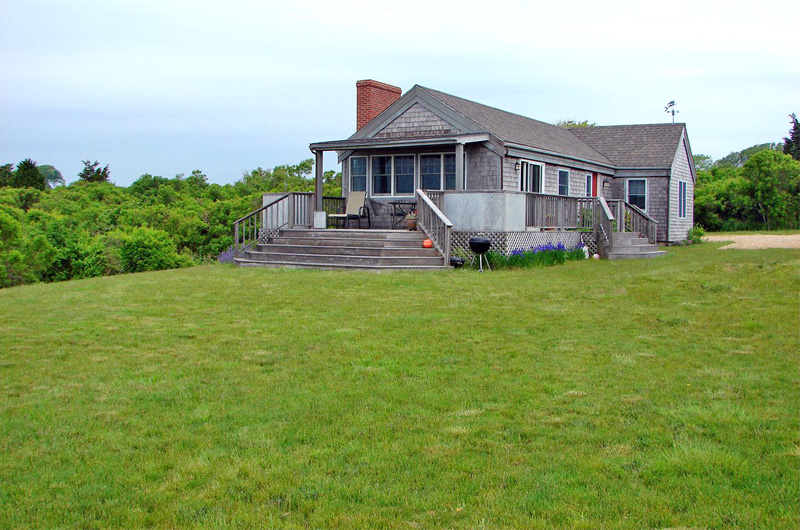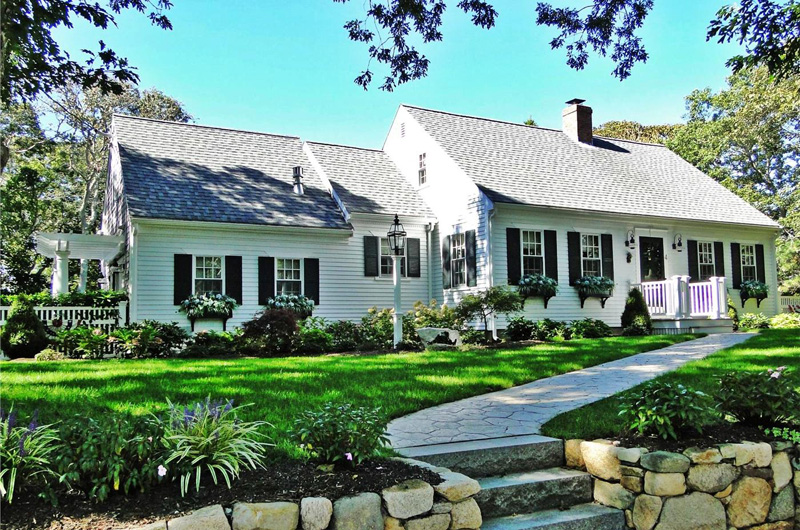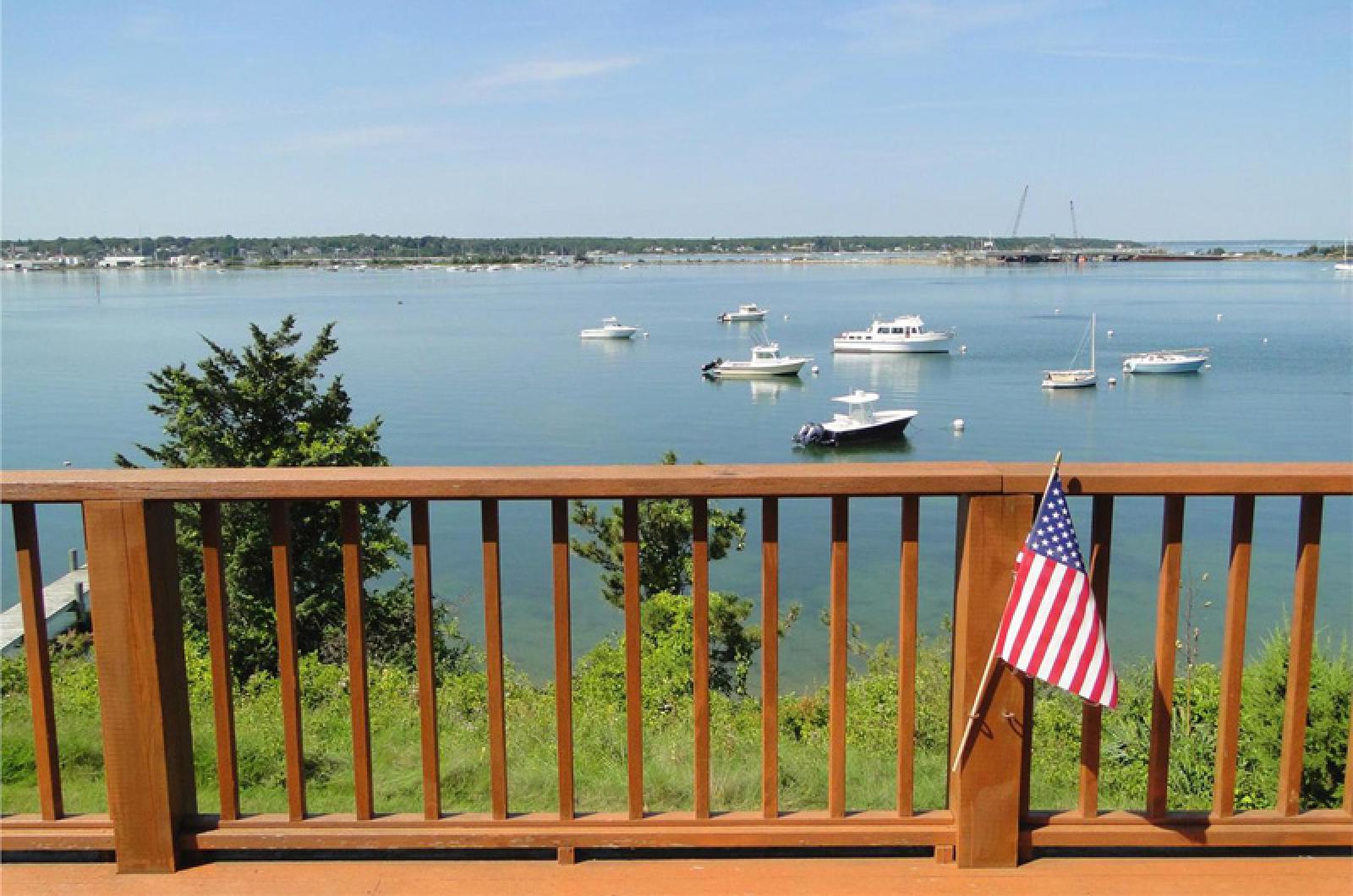Against a backdrop of rocketing demand for vacation rentals on the Cape and Islands and a rapidly expanding online booking industry, state lawmakers are anticipating the passage of a sweeping tax on short-term rentals that could bring up to $18 million to the region by this time next year.
At least three separate proposals now aim to apply a 5.7 per cent room-occupancy tax to short-term rentals in the state, including those offered through online sites such as Airbnb, which arrived on the Island in 2013. A local option would allow towns and cities to add their own levy of up to six per cent, which for the Vineyard could amount to the second largest source of tax revenue after the meals tax.
“This is basically the biggest chunk of money that we will see coming through state policy on Beacon Hill in quite a long time,” said Cape and Islands Sen. Julian Cyr, who has already begun looking at ways to generate support for using the revenues to address longstanding wastewater concerns in the region.
“I think it’s going to be moving quite fast in the coming months,” Mr. Cyr said of the legislative process, which has been years in the making. He expected some version of a short-term rentals tax to become law this year.
The state senate last week approved a $40.8 billion budget that includes a tax on short-term rentals. A final version of the budget will eventually be submitted to Gov. Charlie Baker, who has filed his own proposal to tax short-term rentals.

The Massachusetts Lodging Association and others have welcomed the efforts as a way to level the playing field for traditional hotel owners and private homeowners who rent their properties for part of the year. And affordable housing advocates say the measure has the potential benefit of keeping more rental properties in the year-round pool.
But the proposals have rattled nerves in the seasonal rental industry, which has enjoyed an advantage over traditional hotels and inns that pay taxes and must abide by health and safety regulations.
Governor Baker’s proposal would apply only in the case of properties rented for more than 150 days in a year, passing over many rentals on the Vineyard, which has a peak season of only about 10 weeks. But proposals in both the house and senate target nearly all short-term rentals in the state. A more complex proposal by Reps. Aaron Michlewitz and RoseLee Vincent would require health and safety inspections, and additional insurance for owners, among other provisions.
Maine, New Hampshire, Rhode Island and Vermont have all adopted room-occupancy taxes, ranging from seven to nine per cent, with Rhode Island and Vermont allowing towns and cities to adopt an additional one per cent local levy.
In response to a request by Mr. Cyr and Cape and Islands Rep. Dylan Fernandes, a state committee dealing with the Michlewitz-Vincent bill will hold a public hearing for Cape and Islands residents on June 12 from 3 to 6 p.m. at the Barnstable town hall.
Official housing reports at least since 2000 have recommended pursuing some sort of seasonal excise tax on the Island, in addition to the 5 or 6 per cent that most towns now collect on top of the 5.7 per cent state levy, to add to the year-round housing stock. (West Tisbury has opted out of the local tax.)
According to a 2013 housing needs assessment issued by the Martha’s Vineyard Commission, more than two thirds of all new housing on the Island from 1990 to 2010 was for seasonal or occasional use, with seasonal rentals ranging from $1,200 to $45,000 per week. An Islandwide housing production plan drafted this year also recommends a seasonal rental excise tax at the state level. Weneedavacation.com, an online rental agency that caters to the Cape and Islands, says prices on the Vineyard have spiked by 6.3 per cent this year — more than on the Cape and Nantucket, and up to about three times the usual annual increase — in light of high demand. Company spokesman Elizabeth Weedon said bookings are slightly down compared to this time last year, but she also noted a 50 per cent reduction in tourism funding in the region. Overall, she anticipated another strong season.
But looking ahead, she worried that the house and senate proposals would weigh heavily on a growing number of homeowners in the region, including many retirees who rent out their homes for part of the year to make ends meet.
“Most of us here do own vacation rental homes ourselves,” she said, “and we’re just appalled at the effect that it’s going to have on us personally.” She said a new tax would make it impossible for homeowners to raise their rates or charge extra for services like laundry and cleaning next year.
“Their contention that they can pass this on to the vacationers is ludicrous,” Ms. Weedon said of state lawmakers pushing the tax.
But the proposals have drawn broad support in the state, including from the traditional lodging industry which advocates for at least basic safety and health standards, and required registration for short-term rentals.
“More and more people are taking advantage of short-term rentals and opening up pretty much a bed and breakfast for the season,” Massachusetts Lodging Association president Paul Sacco told the Gazette this week. He singled out Airbnb, which he said now trails only Marriott Hotels in terms of rooms available. “We’re not looking to obliterate them, we’re looking for them to be taxed and regulated,” he said. Martha’s Vineyard Chamber of Commerce director Nancy Gardella, who supports some form of taxation in the state, said she understood the concerns about potentially deterring vacationers. But she pointed to much steeper room-occupancy taxes in New York city, where she said tourism has not suffered. “To have other people’s money come back to serve our town and community to me makes a lot of sense,” Ms. Gardella said, noting the Island’s abundance of short-term vacation rentals. “I say we make the most of that opportunity.”

But Ms. Weedon said support for the proposals doesn’t necessarily align with existing priorities on the Cape and Islands. “I honestly think there are tons of homeowners who are blissfully unaware of what’s happening,” she said, noting the absence of any kind of association to speak on their behalf. She also pointed out that many homeowners who live out of state feel powerless because they can’t vote in Massachusetts.
Airbnb currently lists 306 properties on the Vineyard, with prices ranging from $10 to $3,650 per night. Weneedavacation.com lists 425 properties on the Vineyard, with a price range of $250 per night to $25,000 per week.
Airbnb, for its part, has welcomed a seasonal rentals tax in the state, in part as a way to help update policies that it says never anticipated the online booking industry.
Will Burns, Airbnb’s policy director for Massachusetts, said the company has tried for at least two years to establish a tax in Massachusetts. “We think it’s important to have a very simple approach,” he said of the various proposals now on the table. He added that a room occupancy tax should apply across the board, regardless of how long a property is rented. “We want to be part of the solution,” he said.
Closer to home, Tisbury officials have drafted a bylaw proposal that would require health and safety inspections for all short-term rentals in town. The proposal was tabled prior to the annual town meeting in April, in light of the state efforts and to allow more time for discussion. And the Chilmark planning board has begun investigating the overall impact of Airbnb and other short-term rentals on the town’s housing market. Island officials have acknowledged a seasonal rental tax as something of a double-edged sword, since it would fall equally on year-rounders trying to get by, and people running larger-scale businesses — either on their own or through an online service.
“I think ultimately we are going to have to do something,” Tisbury selectman Tristan Israel said this week, although he had reservations about how a statewide tax could affect the Island. It might not be a win-win situation, he said, but he agreed the community at large could benefit from the added revenue. Mr. Fernandes shared a desire to use future revenues from seasonal renters to address longstanding problems in the region, including a lack of wastewater infrastructure and year-round affordable housing. “It’s really important to me that a significant portion of the funds come back to our local communities,” he said.
This story has been changed to correct the number of Vineyard properties listed by Weneedavacation.com. The number is 425, not 150.







Comments (37)
Comments
Comment policy »